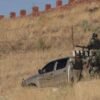KARACHI: In a significant move to modernize urban transport and logistics, the Sindh government has approved two major infrastructure initiatives the procurement of 500 electric buses and the construction of a dedicated elevated freight expressway in Karachi.
The decisions were made during the 48th meeting of the Public-Private Partnership (PPP) Policy Board, chaired by Sindh Chief Minister Murad Ali Shah. Among the key approvals was the People’s Green Transport Project, which aims to roll out a large fleet of electric buses in Karachi and Hyderabad.
According to the plan, the 500 electric buses will be introduced in phases, accompanied by the development of supporting infrastructure, including bus depots, charging stations, modern bus stops, and an automatic fare collection system.
Sindh’s Senior Minister Sharjeel Inam Memon noted that the initiative is designed to provide affordable and eco-friendly transportation, reducing traffic congestion and air pollution in the province’s major urban centers.
In addition, the board gave a nod to the revised project structure, risk-sharing matrix, and an amendment allowing a private entity an exemption from the pre-qualification process and a “Right of First Refusal.” The board also greenlit the investor selection mechanism to bring on board a private sector partner.
Elevated Freight Expressway Project (EFEP)
The PPP Policy Board also approved the Elevated Freight Expressway Project (EFEP), a 16.5-kilometer, four-lane expressway connecting Karachi Port (East Wharf) to Jam Sadiq Interchange (Qayyumabad). This elevated route is intended to streamline freight movement by providing 24/7 access for heavy vehicles, cutting the travel distance by 26 kilometers, and reducing pressure on inner-city roads.
The EFEP will be executed under the Design-Build-Finance-Operate-Transfer (DBFOT) model with a user-pay system. To ensure project viability, the Sindh government will offer Viability Gap Funding (VGF) and a 10-year Minimum Revenue Guarantee (MRG) to the private partner.
The board also approved changes to the expressway’s design to minimize land acquisition, improve connectivity with the Karachi Port and M-9 motorway, add shared entry/exit ramps, and align the project with the Blue Line Bus Rapid Transit (BRT) system.
The Chief Minister instructed the board to expedite all preparatory work so that the foundation stone can be laid without delay.
These projects mark a major step forward in Sindh’s push toward sustainable urban mobility and efficient freight infrastructure, with the government leveraging public-private partnerships to attract investment and deliver modern services.



